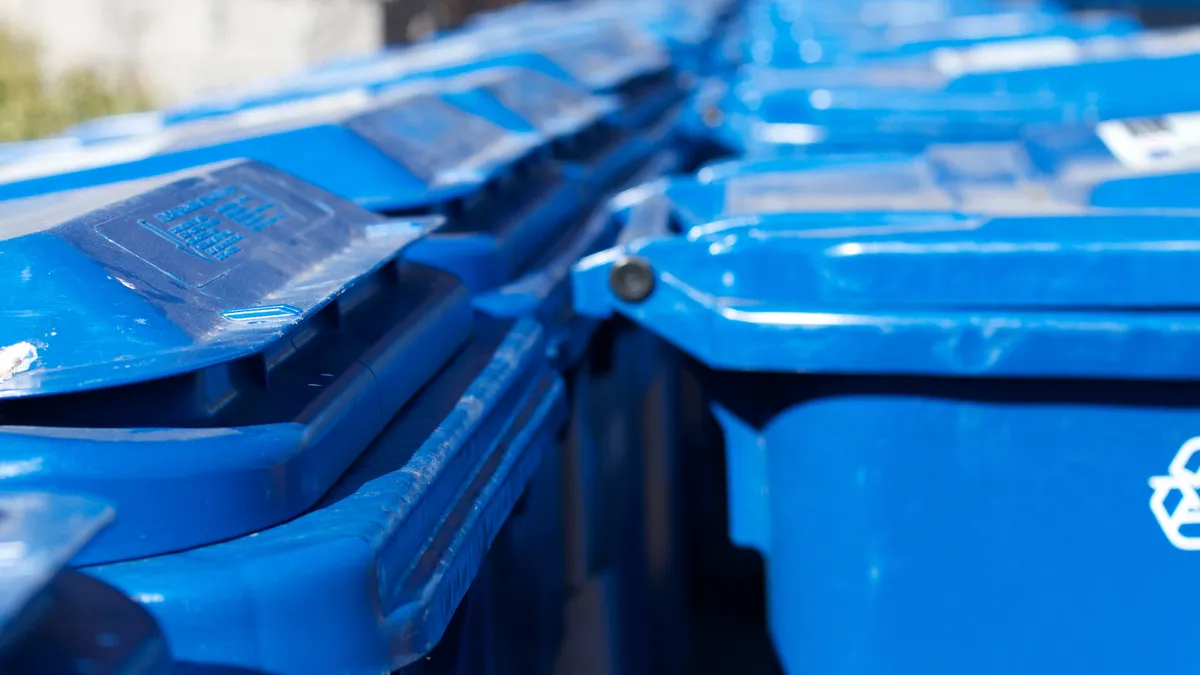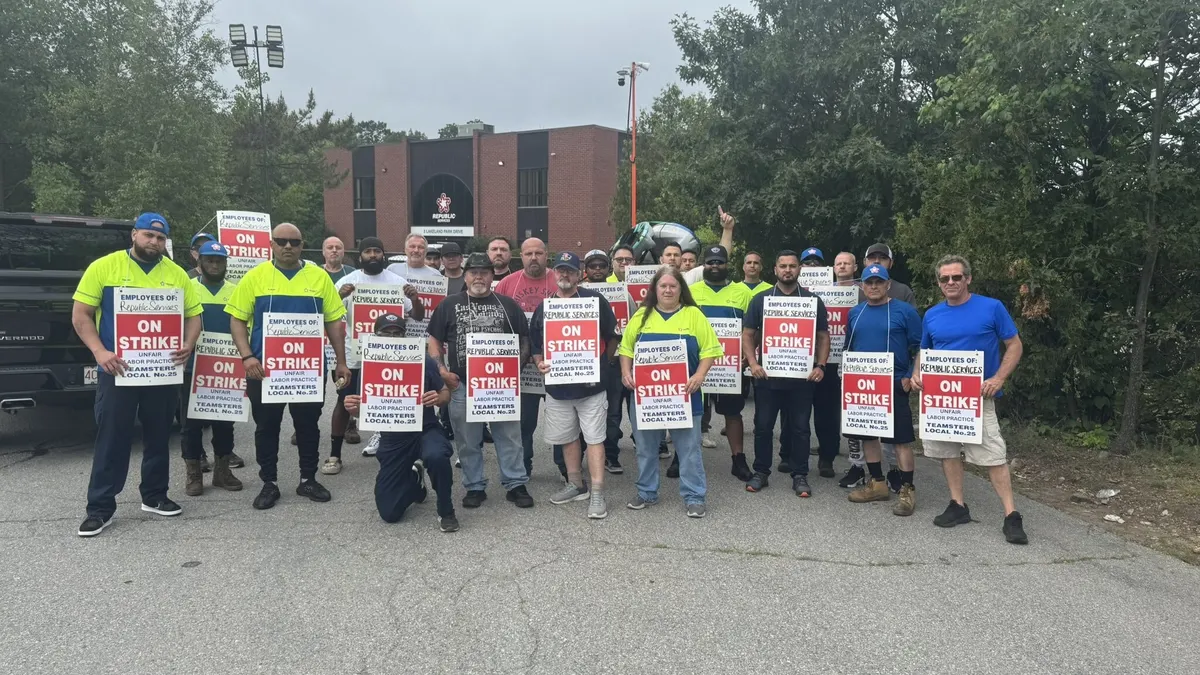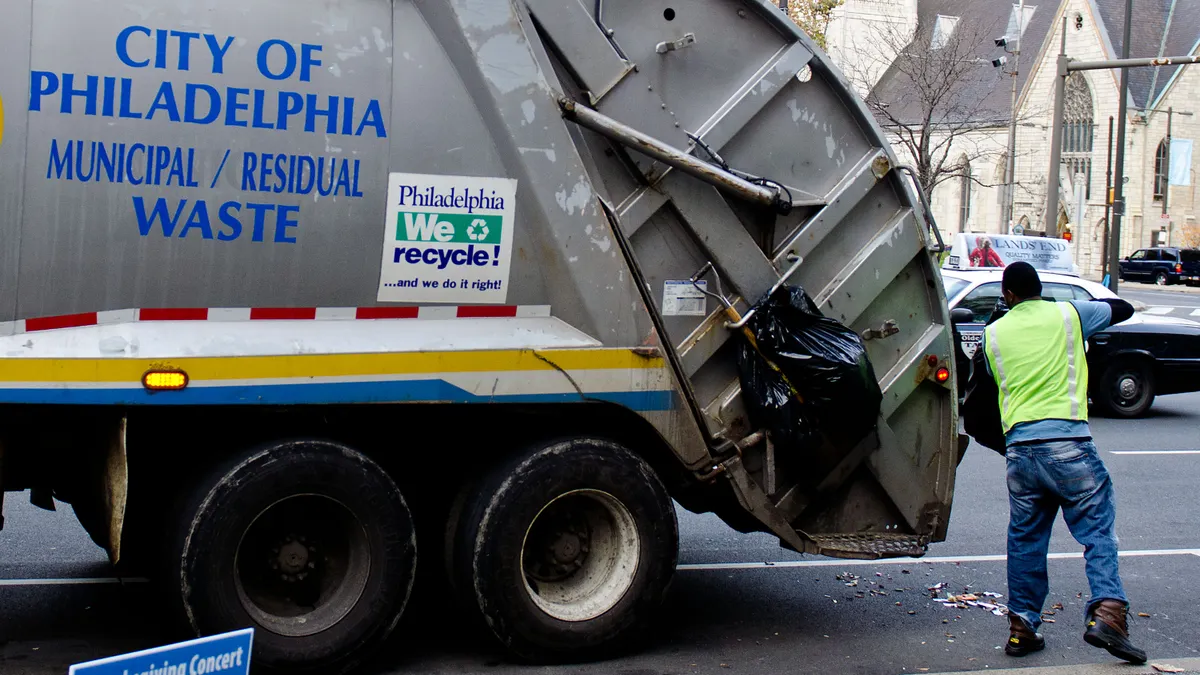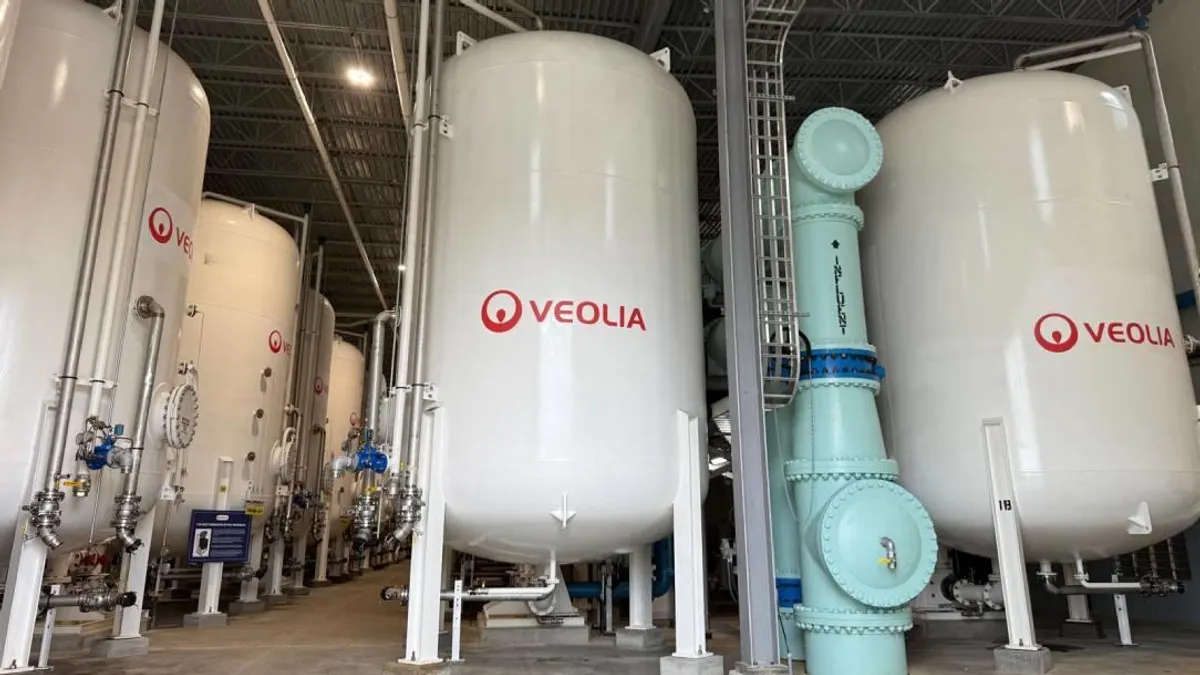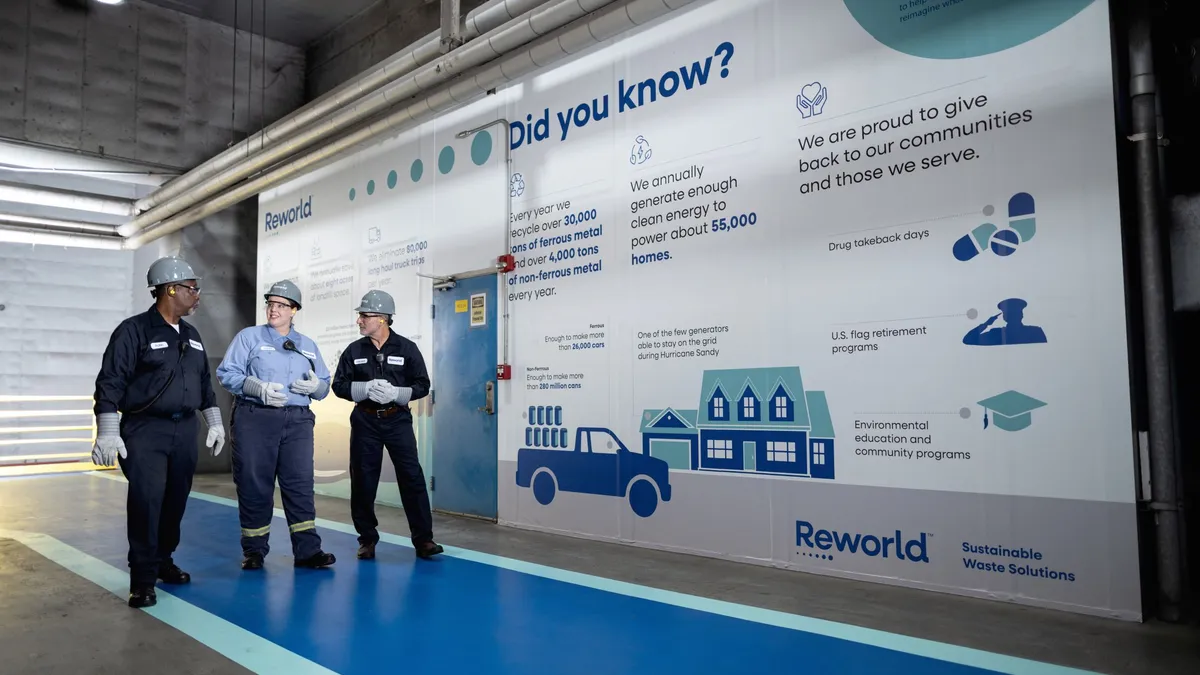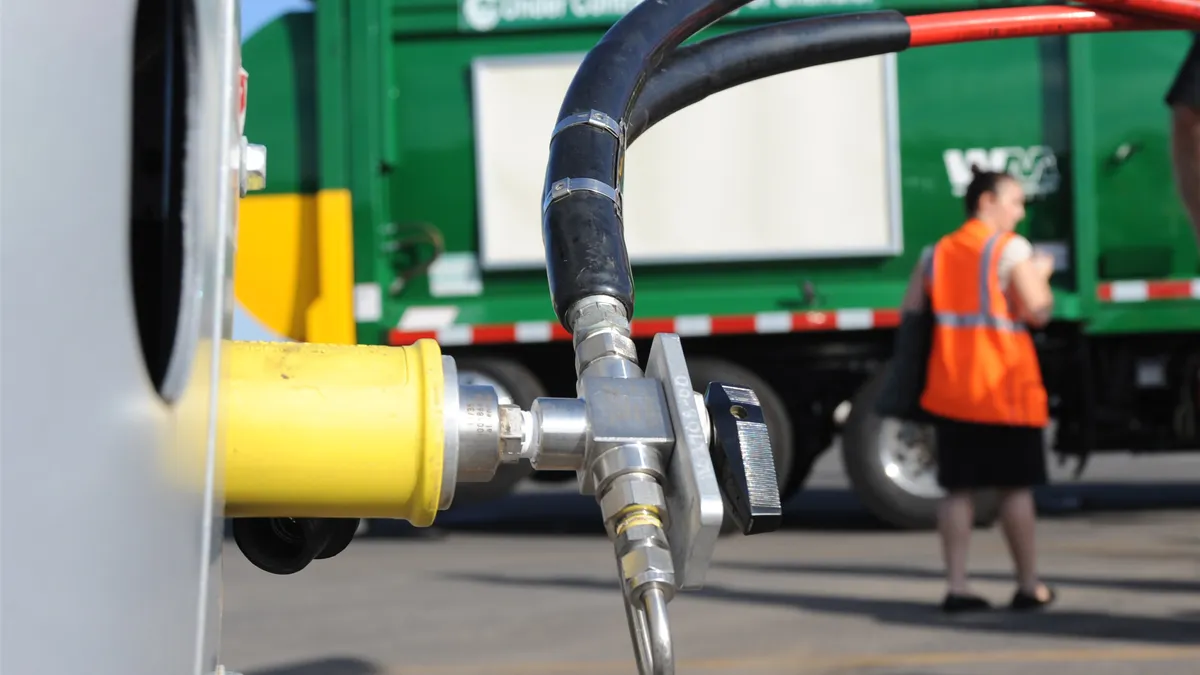Major players in the waste space are throwing their weight behind newly-introduced legislation that would seek to create a program within the U.S. EPA to bolster recycling education.
Sponsored by Sens. Rob Portman (R-Ohio) and Debbie Stabenow (D-Mich.), the Recycling Enhancements to Collection and Yield through Consumer Learning and Education (RECYCLE) Act has already received endorsements from the Solid Waste Association of North America (SWANA), National Waste and Recycling Association (NWRA), and Institute of Scrap Recycling Industries (ISRI).
Prominent plastics, fiber, glass, and aluminum groups have also thrown their weight behind the bill, as have environmental organizations including the Sierra Club, Natural Resources Defense Council (NRDC), and Wildlife Conservation Society.
RECYCLE would authorize up to $15 million per year, over the course of five years, in grants to states, tribes, nonprofits, public partnerships, and local governments seeking to ramp up commercial and municipal recycling outreach and education. The legislation would also direct the EPA to develop a model recycling toolkit to bolster recycling participation and decrease contamination rates. Where appropriate, the bill would also task the EPA with more frequently updating guidelines for products containing recycled material, while recommending federal agencies purchase those items.
This comes shortly after the EPA announced plans to set national goals as part of a new action framework. Education and outreach, including the potential for a national campaign, is emphasized within that plan. While some other recent pieces of legislation have proven divisive — and the EPA's own national framework has been criticized by some as not ambitious enough — RECYCLE's broad backing shows areas of consensus among both industry and nonprofit players.
“The broad support for the Recycle Act, from industry, environmental groups, waste management, and all types of materials groups suggests that education and outreach is desperately needed to help improve our recycling systems. It shows that there are challenges with our nation’s recycling that we can address today," said Emily Benavides, a spokesperson for Portman, in a statement to Waste Dive. "This is in part because our communities, households, and businesses are demanding it."
RECYCLE is the latest in a sudden influx of federal activity around recycling. A number of bills are circulating in Congress, including the industry-backed RECOVER Act, which has a major infrastructure focus but has yet to garner full-throated support from groups like ISRI.
Another proposed bill that would establish extended producer responsibility and a national container deposit system has been less popular with many key players. The NWRA has already come out in "strong opposition" to that legislation, which has yet to be introduced. But RECYCLE is garnering greater support.
Brandon Wright, vice president of communications for NWRA, told Waste Dive the new bill's education emphasis is especially important for the group's membership of private sector companies.
"We're excited about the domestic opportunities, [which] can lay the groundwork for future efforts," he said.
Wright shared that NWRA "is glad that Congress is paying attention" to the issues facing recycling and lending financial muscle to educational efforts already underway. "We have been working with our members to help them educate their customers on better ways to recycle and do it smarter...[the bill] provides some of the funding," he said.
The RECYCLE Act focuses predominately on education and awareness, a long-running challenge for the industry. RECYCLE would provide grants for a range of activities including advertising campaigns, door-to-door education, toolkits for municipal and commercial generators, and labeling efforts for both bins and carts. That is likely to bolster the reach of nonprofit groups like The Recycling Partnership (TRP), which is behind a large-scale effort to distribute carts and conduct curbside education around the country.
In a statement to Waste Dive, TRP's Vice President of Policy and Public Affairs Elizabeth Biser praised the legislation and said the bill's funding allotment is "sufficient to reach approximately 25 percent of single-family households in the United States."
Moreover, the legislation provides a significant scale expansion relative to existing efforts, building on EPA-offered resources that aim to boost community education and awareness. The cumulative $75 million represents a major investment in deepening and improving outreach, with no less than 10% of the amount reserved for "low-income communities." RECYCLE would also modify the Solid Waste Disposal Act, which currently requires the EPA to review "from time to time" the list of products containing recycled content. Under the new bill, the agency would review the list "not less frequently than once every five years."
Notably, RECYCLE does not appear to include mixed waste systems — potentially affecting new and growing programs currently underway in states like Maine, West Virginia, South Carolina, and Alabama.
While the bills differ in scope and focus, RECYCLE is likely to draw comparisons to RECOVER, which offers $500 million in matching grants and focuses on infrastructure as well as education. ISRI Chief Lobbyist Billy Johnson told Waste Dive that RECYCLE "will result in significant improvements in the residential recycling stream" and carefully lays out government procurement goals, which he argued is not the case with RECOVER.
"[RECOVER] requests $500 million over a 5-year period with little in the way of specifics of how the money will be spent, and ways to pay for it or offset this spending within the federal budget," said Johnson.
RECYCLE is set to run from 2020 through 2024. Officials familiar with the legislation told Waste Dive the bill's success would likely be re-evaluated, and lawmakers could seek improvements and reauthorization at that time.
Jesse Maxwell, advocacy and safety manager for SWANA, told Waste Dive the bill is meant to offer a shorter-term fix. "The hope is that this bill can help the U.S. get over the initial confusion that the public has around recycling," he said.


